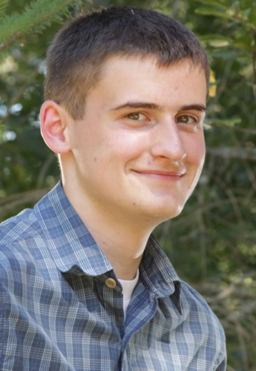
Within the first few weeks of starting at UP, Henry had picked up a second major, joined one of our many University Clubs, and started shadowing at multiple practices of a range of types of healthcare. Starting at University of Portland, Henry had enrolled in the College of Arts & Sciences (CAS) for a Chemistry degree but soon after, his advisor discussed adding a German degree as they figured out that it would be possible for him to complete both simultaneously. These classes in German put him in contact with the Shepherd Academic Resource Center (SARC), who was looking for more student tutors. Henry signed up, got trained over his freshman year and come his sophomore year, he was able to tutor in Chemistry, Biology, and German courses. In his Senior year, Henry received a government stipend to study German at the University of Munich after help from the SARC and German department, and was able to fly over for a month of classes in Bavaria. This experience was followed by a final semester at the University of Portland, wrapping up the two degrees in three and a half years. After graduating from the University in Dec ’21, he spent the next semester working through the application process while working at a local pharmacy, until the end of the summer when he moved from Portland to Fullerton California to attend the Southern California College of Optometry. We wish Henry lots of sunshine and success at SCCO.
1. Give a short description of your application process / tips for upcoming applicants.
The application process for optometry schools involves a test, written application, and letters of recommendation. The schools in Canada and America use the OptomCAS to streamline the application process, which opens midsummer for the following year. The test, called the Optometry Admissions Test (OAT), can be completed before the application opens, and so I took a lighter semester in my junior year, taking the OAT a few months before the application proper opened. When the application opens, the essay questions from the school are made public, and I would recommend submitting the applications before school begins. Most schools use rolling admissions even if the short overview on the OptomCAS does not mention it, so an early application is more likely to earn a spot than an application submitted closer to the final submission deadline. Once the application is reviewed, you will be informed if you advanced to the interview stage of the application for that school. After the interview, a spot in the upcoming year is offered, then in the fall you will be among the entering cohort.
2. How did your time at UP help you with your career choice, application, etc.? (involvement, academics, research, advising, etc.)
My time at the University of Portland helped me find my career choice in the first year “Introduction to Health Professions” class. I knew I wanted to pursue optometry before beginning school, but the road to application was not something I understood. The course helped to clear the waters, from which school I would need to go through to assistance on the written essays for the applications. The school also helped me to test myself through the tutoring position, to see if my calling was elsewhere in the world; the wide array of experiences and people I met allowed me to reaffirm that this is what I want to do.
3. What are your favorite memories of UP / any highlights?
My favorite memories at UP involved the SARC and the applications they encouraged me to send out. Through the school, I was introduced to stipend programs to help me travel abroad, and encouraged to try for them. These opportunities allowed me to grow, putting what I learned into practice in the case of my German language skills, which the UP administration helped to facilitate.
On campus, the friends I made- both in and out of the Pre-Health groups- helped me through classes and made my favorite memories. The meals, late nights, and last minute study sessions formed a camaraderie between us, forging us together to tackle complicated problems together, each valuable friend approaching in a different manner. We grew together, and have made lasting impacts on each other.
4. What general advice would you give aspiring pre-health types?
I would suggest focusing on shadowing professionals to affirm that you have found your calling. I branched out, shadowing dentists, optometrists, and making efforts to shadow doctors (although the quarantine threw a wrench in those plans). Because of the variety of application processes, entrance exams, and timeframes, an unprepared applicant may have their application delayed a year. Once you have a target program, a schedule is easy enough to put together though, so in the first two years discerning how you wish to provide healthcare, and finding the support the university offers is a wise decision.